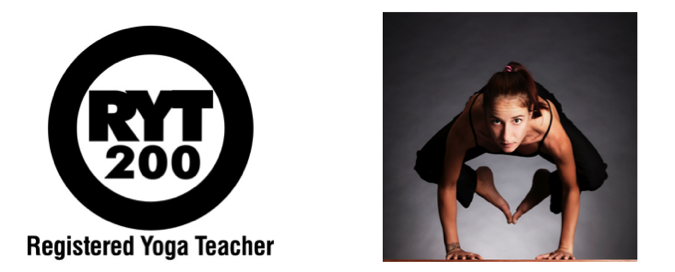
If you are interested in becoming a yoga instructor, then one of the first things you might ask yourself is if you should sign up with the Yoga Alliance and become a Registered Yoga Teacher (RYT.) Like in any profession, it is good to become part of a community that helps to maintain the integrity of the particular craft. The YA (so far) is the only group in the US who is attempting to do so. As you continue your path of building your career as an instructor, you will definitely need to consider whether you want to join this group or not as the associated fees are quite high. In this post we will take a closer look at the pros and cons of becoming a Registered Yoga Teacher.
Many students ask us this question and there is no one simple answer since there are many factors to take into consideration. In building your career as a yoga teacher, one of the first challenges you will face is the issue of trust. Like in any business, credibility is the biggest obstacle you will face in growing your following of yoga students. If you look at any of the major teachers such as Shiva Rea, John Friend, Sean Corne, Rodney Yee, and so on, you will see right away that these teachers have established trust within the community. This is very important because students will be opening themselves up to you (similar to that of a therapist or doctor) which means you need to gain their trust. One way of doing this is by becoming a Registered Yoga Teacher.
By joining any association and adhering to a set guideline of principles, this help to establish your name and trust within the community because you are telling the world that you are committing yourself to follow a set of guidelines in which your students can hold you to. Just like when doctors take a hippocratic oath, you are taking the same pledge and saying you are going to adhere to these rules and guidelines.
No they do not. The school you take your training with does. It is important that you understand how this works by becoming a Registered Yoga Teacher.
1. For you to get registered as a yoga teacher with the Yoga Alliance, you must have already taken a training from a school that is registered with the YA. Basically any school that wants to offer YA accredited training must pass a set of curriculum standards. When it does pass, then their school can become a Registered Yoga School and offer YA approved yoga certification programs.
2. Once you have taken the yoga teacher training course from the Registered Yoga School, you are now eligible to pay your fees with the YA and become a Registered Yoga Teacher.
That’s it!
They do not do anything that certified you. By you taking a teacher training from a school that is registered with the YA, this is what allows you to register with them.
The main benefit of joining the YA and being a Registered Yoga Teacher is that you can now where that “badge” and show other people that you are following some rules and guidelines when teaching yoga. The truth is that this is really just a “pay to play” game because the YA does not go around “policing” teachers. Obviously if something major is brought to their attention they can revoke your membership. Otherwise you can just go about your business and you will rarely (if ever) hear from them. Currently (as of this writing 2.6.12) there seems to be some issues that need to be addressed within the organization at the Yoga Alliance. Many teachers feel that they are not doing as good of a job as they could be and therefore feel that the fees they pay are unjustified.
If you do decide to become a Registered Yoga Teacher, then you need to know that they offer three different types of registration:
RYT200 – This means you have met the minimum requirements of the 200 hour yoga teacher training
RYT500 – This means you have met the minimum requirements of a 500 hour yoga teacher training
E-RYT500 – This is like getting your PHD or doctorate in that you are an “Experienced Registered Yoga Teacher” and have gone above and beyond the 500 hours.
No you do not need to be registered with the YA to teach yoga. You can teach at any studio, yoga retreat, workshop, etc…so long as the organization does not require you to be registered. These are the important questions you need to ask yourself:
1. Do I want to teach professionally and really make this my career?
2. Do I want to teach at a venue that requires its teachers to be Registered Yoga Teachers?
The answer to these two questions should give you enough information to decide on whether to enroll with them or not
If you are truly serious about launching a successful career in yoga and teaching in front of a lot of people and at credible studios, then yes you should because it is the only game in town when it comes to establishing credibility. But if you are just looking to teach on the side or deepen your own practice, then save yourself money.